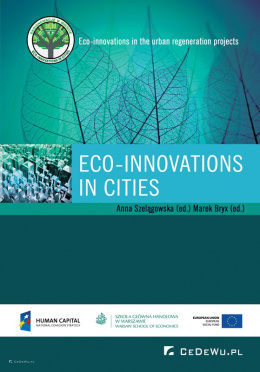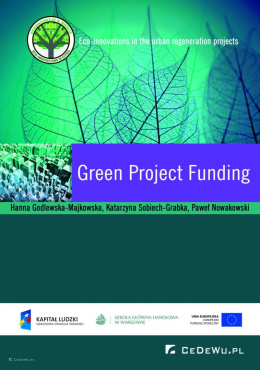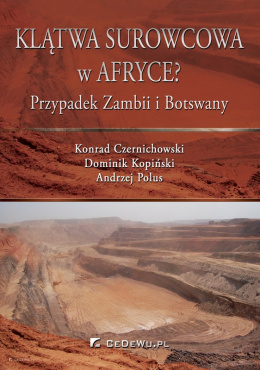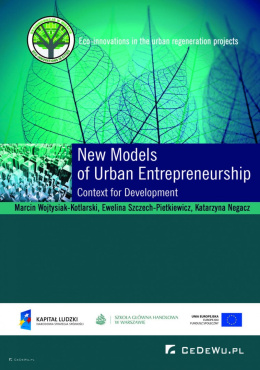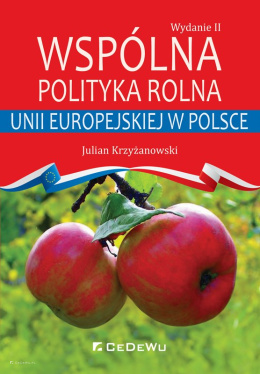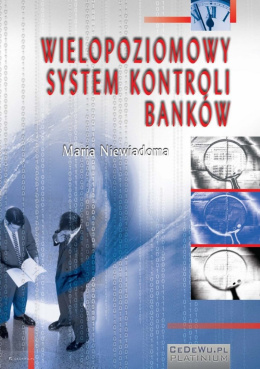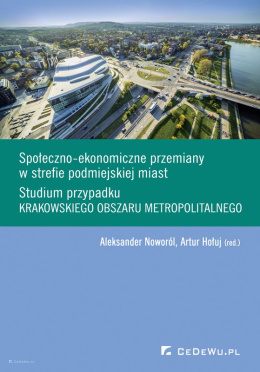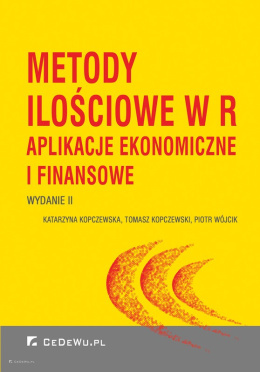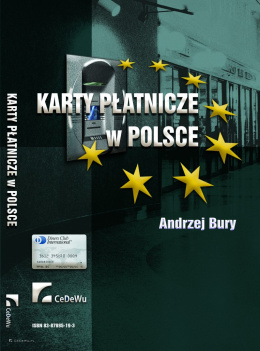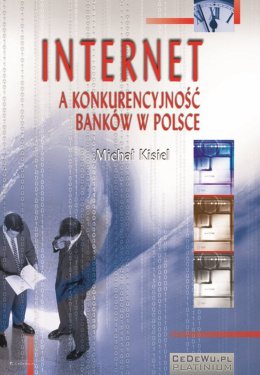-
Koszyk jest pusty
-
x

-
Koszyk jest pusty
-
x
- Kategorie
-
Green Urban Regeneration Projects
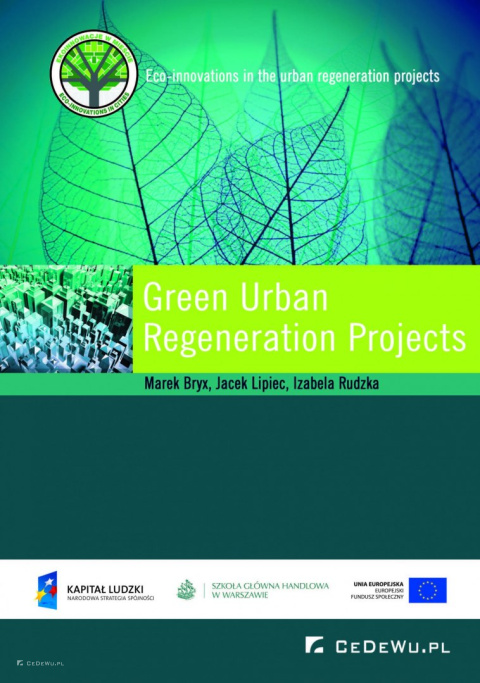
E-booki wysyłane są w formie linku do pobrania po zaksięgowaniu środków i zaakceptowaniu zamówienia przez Obsługę, jeżeli w opisie książki nie znajduje się gotowy link do pobrania publikacji. Wysyłka plików cyfrowych odbywa się od poniedziałku do piątku w godz. 10:00 – 18:00.
| Wysyłka w ciągu | 10.oo-18.00 pn-pt. |
| Kod kreskowy | |
| ISBN | 978-83-7941-217-4 |
| EAN | 9788379412174 |
Download
Pobierz plik: E-book 1 – Green Urban Regeneration Projects (pdf)
The terms „eco" or "green" have become vastly used worldwide. Both of them are often treated as buzzwords. However, they are significant buzzwords. The ecological orientation is perceived as the overriding goal of advanced economies to alleviate negative climate changes, but not only. Each city is changing, even if climate changes do not have a direct impact on this yet. By changing the city strives to provide a higher standard of living for residents, what today means "green" standard.
We point out that it is especially important for deprived areas and their societies because when we have ideas and sources to implement them and finally regenerate these areas we should do this on the high level fulfilling all modern standards. We accept a paradigm that no investment action has sense if it does not face global and local challenges. Our general idea is that there is no investment inside a city space, including deprived areas, which is not green.
In this book dedicated generally for students, but not only, we try to explain that every city and every society are responsible for doing to be green or eco. Our intention was to provide some green ideas and solutions coupled with management solutions and financing opportunities.
Publisher's note 9
Introduction 11
Chapter 1
A deprived area as a problem to solve 13
1.1. Introduction: Deprived areas - why are they problems? 13
1.2. Transformation and its results 15
1.3. Civilizational challenges 20
1.4. The Definition of an "Eco-city" 22
1.5. Definition of regeneration processes (projects) 23
1.6. Delimitation of deprived areas 26
1.6.1. General criteria of defining deprived city areas 27
1.6.2. Block of flats (Residential areas) 28
1.6.3. Brown fields 29
1.7. Conclusions 29
Chapter 2
Regional plan and the city strategy of development 31
2.1. Introduction 31
2.2. Definition of a region and its policy 32
2.3. City and regional strategies and their interdependencies 33
2.4. How then are city strategies created? 35
2.5. A city strategy and a city space 36
2.6. Local (City) Regeneration Plan 38
2.7. Global challenges in a city strategy 40
2.8. Significance of unique features of a city 41
2.9. Conclusions 43
Chapter 3
European city and its responsibility
3.1. Introduction 45
3.2. Tasks of green regeneration projects 46
3.3. The phenomena of a European city 49
3.4. The cities responsibilities 51
3.5. Gentrification and revitalization 52
3.6. Conclusions 56
Chapter 4
The elements of strategies for a city's deprived areas 59
4.1. Introduction 59
4.2. Socio and economic analysis 60
4.3. Socio and economic analysis. The Case of Olsztyn 61
4.4. Public spaces and their role for local society 64
4.4.1. Some aspects of a definition 64
4.4.2. Greenery as public spaces 66
4.5. Heritage as an element of city strategy and regeneration projects 68
4.5.1. Heritage 68
4.5.2. Tangible and intangible heritage 69
4.5.3. Conditions of use heritage as a goal of the development strategy or the regeneration plan of the city 70
4.5.4. Examples of using heritage objects in city development 72
4.6. Conclusions 73
Chapter 5
The management of a revitalization project in a city area 75
5.1. Introduction 75
5.2. Procedure of planning of development in municipal offices 76
5.3. Direct management of regeneration projects in a City Hall 77
5.4. Indirect management of regeneration projects in a City Hall 79
5.5. Public consultation and participation as an element of management - principles of consultant procedures 81
5.6. The pre-consultation case from Olsztyn 82
5.7. Monitoring of the urban crisis areas in the regeneration process 84
5.8. Conclusions 89
Chapter 6
Conventional sources of financing revitalization 91
6.1. Introduction 91
6.2. Financing revitalization from local governments in Poland 92
6.3. Revitalization in Warsaw 94
6.4. Revenues of local governments in Poland 98
6.5. Conclusions 101
Chapter 7
Emerging sources of financing revitalization 103
7.1. Introduction 103
7.2. Public-Private Partnership (PPP) 104
7.3. Risk implications in PPP projects 109
7.4. Joint European Support for Sustainable Investment in City Areas (JESSICA) 111
7.5. JESSICA in the Mazowieckie Voivodship 113
7.6. The emergence of green bonds 116
7.7. Conclusions
Chapter 8
Summary 121
References 127
Index 131
Miscellaneous 133
Polub nas na Facebooku




